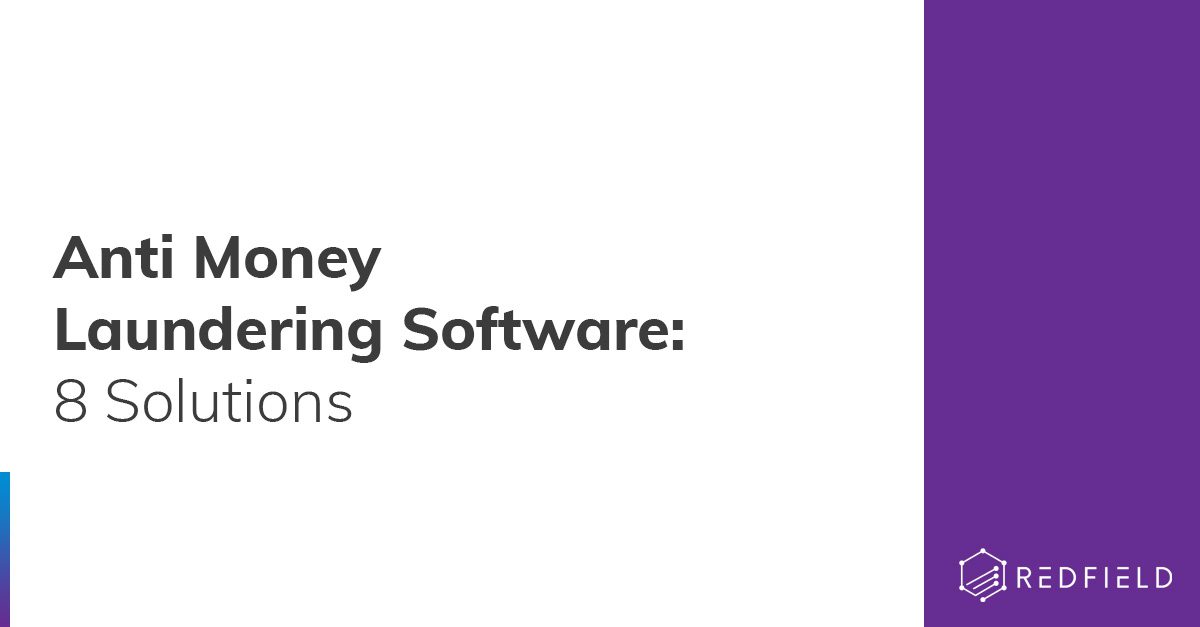
Welcome to the world of modern finance, where technology meets the battle against financial crime. With AML – Anti Money Laundering software – your business will protect itself and its customers from suspicious activities. How can you stay one step ahead in this fight? In the article below, we will enlist eight AML software solutions and get familiar with their main features.
1. NICE Actimize
NICE Actimize Anti-Money Laundering software is a product developed in the United States. Among its main features are advanced behavior-based analytics, comprehensive risk management tools, and real-time monitoring solutions.
Pros
- Comprehensive Detection: NICE Actimize offers advanced analytics and machine learning capabilities, which helps to effectively identify complex money laundering patterns and suspicious transactions.
- Regulatory Compliance: The software is designed to meet various global regulatory requirements, to make sure that companies can maintain compliance and avoid penalties related to anti-money laundering regulations.
Cons
- Complexity: Due to its robust features, NICE Actimize can be complex to implement and maintain, requiring specialized expertise from in-house teams.
- Cost: The complexity of the software and ongoing updates may result in higher costs, making it less accessible for smaller businesses with limited budgets.
2. FICO Falcon Fraud Manager
FICO Falcon Fraud Manager is developed in the United States. It stands out from competitors with its advanced real-time monitoring, machine learning algorithms, and customizable rule sets, which guarantee effective detection and prevention of illicit activities.
Pros
- Advanced Analytics: FICO Falcon Fraud Manager employs complex algorithms and machine learning to detect fraud patterns accurately, leading to high fraud detection rates and low false positives.
- Real-time Detection: The software operates in real-time, which helps to identify and prevent suspicious transactions right after they have emerged.
- High Level Of Customization: Users can create and modify rule sets to suit their specific business needs.
Cons
- Costly Implementation: Implementing FICO Falcon Fraud Manager requires significant costs for the following expenses – licensing, hardware, and training. This makes the software less accessible for small businesses.
- Complex Integration: Integration with existing systems can be challenging and time-consuming, potentially leading to disruptions during the implementation process.
- Limited Non-Card Coverage: While highly effective for card-based transactions, FICO Falcon Fraud Manager’s coverage may be limited for non-card transactions.
3. SAS Anti-Money Laundering
The software developed by SAS, a trusted analytics company with a strong presence in the United States. The product features include real-time transaction monitoring, advanced analytics, and suspicious activity detection.
Pros
- Robust Detection: SAS AML software excels in identifying suspicious financial activities, enabling timely intervention and reporting to regulatory bodies.
- Advanced Analytics: The platform provides powerful analytics and machine learning algorithms to identify even multi-level money laundering patterns and adapt to potential threats.
- Customizable Rules: It offers flexibility in creating custom rule sets, aligning with specific risk profiles and compliance requirements.
Cons
- Complexity: sophisticated features may lead to a steep learning curve for users, necessitating specialized training.
- Costly Implementation: The deployment and customization costs could be significant, making it more suitable for larger financial institutions with substantial AML needs.
- Integration Challenges: Integrating SAS AML with existing systems can be challenging, potentially requiring dedicated technical support.
4. BAE Systems NetReveal
BAE Systems NetReveal Management Anti-Money Laundering software is developed in the United Kingdom. It stands out from competitors with its advanced machine learning algorithms, comprehensive data analytics, and real-time transaction monitoring. These features enable it to efficiently detect and prevent money laundering activities in financial institutions.
Pros
- Advanced Fraud Detection: NetReveal offers robust fraud detection capabilities, using sophisticated algorithms to identify and prevent various types of fraudulent activities, protecting businesses from financial losses.
- Comprehensive Risk Management: The software provides a holistic view of risk across an organization, enabling proactive risk mitigation and compliance with regulatory requirements, fostering a secure and compliant environment.
Cons
- High Implementation Complexity: NetReveal’s sophisticated features and integration capabilities may require significant time and effort to implement, leading to higher upfront costs and potential challenges during deployment.
- Costly Licensing and Maintenance: The software’s powerful functionalities come at a premium, making it expensive for smaller organizations or those with limited budgets to afford both initial licensing and ongoing maintenance fees.

5. Oracle Financial Crime and Compliance Management
Oracle Financial Crime and Compliance Management Anti-Money Laundering software was developed in the United States. Unlike competitors, it stands out due to its capability to monitor a big number of transactions, advanced analytics for risk assessment, and real-time detection of suspicious activities. The software also offers customizable rule sets and integration with multiple data sources, ensuring comprehensive compliance solutions for financial institutions.
Pros
- Complex solution: The software offers a wide range of tools for fraud detection, anti-money laundering (AML), and regulatory compliance. Its main strength is integrated approach.
- Advanced analytics: The software uses advanced machine learning technologies to detect suspicious activities, improving accuracy and reducing false positives. This helps to identify potential threats more effectively.
Cons
- Complexity and cost: Implementing and maintaining Oracle can be a challenge, especially for smaller organizations with limited resources.
- Customization challenges: Adapting the software to unique business processes may require significant customization, leading to longer deployment times and increased expenses.
6. Verafin
Verafin Anti-Money Laundering software is a product of Canada. It stands out from competitors due to its advanced detection algorithms, real-time monitoring capabilities, and comprehensive reporting features. With its user-friendly interface, Verafin allows financial institutions to efficiently identify and investigate potential money laundering activities.
Pros
- Comprehensive Detection: Verafin employs advanced analytics and machine learning to identify suspicious activities and patterns, enhancing detection accuracy.
- Simple Interface: The software offers an intuitive and easy-to-navigate platform, which enables effective use and saves time on extensive training.
Cons
- Costly Implementation: Verafin’s sophisticated features come with a higher price tag, making it potentially less accessible for smaller financial institutions.
- Integration Challenges: For larger organizations with complex legacy systems, integrating Verafin may require significant time and resources to ensure seamless operation.
7. ComplyAdvantage
ComplyAdvantage Anti-Money Laundering (AML) software was developed in the United Kingdom. Its standout features include real-time monitoring, comprehensive risk assessment, and efficient customer due diligence. Unlike competitors, it employs machine learning algorithms to enhance accuracy and reduce false positives. Pricing varies based on package and usage.
Pros
- Advanced AI Technology: ComplyAdvantage leverages cutting-edge artificial intelligence algorithms to continuously monitor and analyze vast amounts of data, enabling quick and accurate detection of suspicious activities.
- Comprehensive Global Coverage: The software offers extensive coverage of sanctions lists, watchlists, and regulatory databases from various jurisdictions worldwide, ensuring compliance with international AML regulations.
Cons
- Cost: Implementation and maintenance costs of such sophisticated AML solutions can be relatively high, making it less accessible to smaller businesses.
- False Positives: Due to the comprehensive nature of its monitoring, ComplyAdvantage might occasionally generate false positives, requiring additional time and effort to investigate non-suspicious activities.
8. AML360
AML360 is an Anti-Money Laundering software produced in the United States. Its standout features include robust transaction monitoring, risk assessment tools, and streamlined compliance reporting. Compared to competitors, AML360 offers user-friendly interfaces and customizable workflows.
Pros
- Enhanced Compliance: AML360 helps businesses adhere to stringent AML regulations, reducing the risk of penalties and legal consequences.
- Comprehensive Risk Assessment: The software employs advanced analytics to conduct thorough customer due diligence and transaction monitoring, enabling early detection of suspicious activities.
Cons
- Costly Implementation: The initial setup cost and ongoing subscription fees may be expensive for smaller businesses, making it less accessible to them.
- False Positives: The software’s stringent algorithms may generate false alerts, leading to increased manual efforts for investigation, potentially slowing down legitimate transactions.
Anti money laundering software: Wrap Up
Redfield’s Anti-money laundering service offers business leaders a game-changing solution to combat financial crime effectively. With a focus on customization and easy implementation, Redfield provides tailored strategies that seamlessly integrate into your existing systems. Our innovative no-code approach ensures that even non-technical users can benefit from our solution effortlessly. Stay confident in your financial security with our AML service!
Redfield Solution
In the battle against financial crimes, Redfield uses advanced technologies to create a custom solution for you. Our comprehensive set of tools helps financial institutions in detecting suspicious activities, ensuring compliance with regulatory standards, and minimizing risk exposure. Contact us and tell us about the challenges your business experiences – we will be happy to help!
What is the AML software?
AML software, short for Anti-Money Laundering software, is a powerful tool used by financial institutions to detect and prevent illicit financial activities. It analyzes vast datasets, monitors transactions, and employs machine learning algorithms to identify suspicious patterns, ensuring compliance with regulations and safeguarding against money laundering and terrorist financing.
Who uses AML software?
AML software is utilized by financial institutions, such as banks, credit unions, and insurance companies, to combat money laundering and detect suspicious transactions. Additionally, businesses in regulated industries, like gaming and cryptocurrency, also employ AML software to ensure compliance with anti-money laundering regulations.
